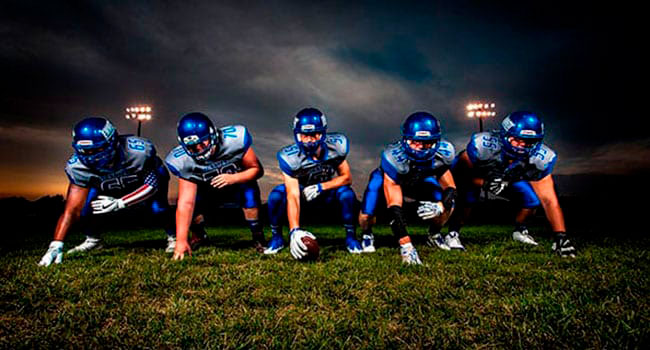 A group of U.S. college football players (#WeAreUnited) have presented a set of demands to Pac-12 athletic conference administrators. The demands vary from COVID-19-based health and safety concerns to economic and racial justice issues.
A group of U.S. college football players (#WeAreUnited) have presented a set of demands to Pac-12 athletic conference administrators. The demands vary from COVID-19-based health and safety concerns to economic and racial justice issues.
Big Ten football players, through a group called College Athlete Unity, followed with a similar list of demands.
It’s clear to everyone – including the players – that United States college athletic conferences, and individual universities, have prioritized getting football revenue over athlete safety, despite what some coaches, athletic directors and presidents are saying.
And the way they want to get that revenue is on the backs of their unpaid athletes, whom they apparently view more as assets than humans.
Colleges and universities across the U.S. have called athletes back to campuses, campuses that otherwise are like ghost towns because there aren’t any other students around. Many schools have decided that classes will only take place online this fall. Nevertheless, these schools are announcing fall football schedules for the students on their teams.
There simply is no ethical justification for colleges calling athletes back to campus while telling other students to stay home because it’s not safe to be on campus.
It’s simply a case of money taking precedence over student welfare. More than a dozen football teams around the U.S. have already seen COVID-19 outbreaks significant enough that they’ve had to shut down all workouts. And that’s before formal football practices have even started.
As Dan Wolken wrote in USA Today, “The 2020 college football season will happen to whatever extent it possibly can because athletics departments need the money, and they’re placing that burden on the backs of unpaid amateurs who are taking on all the risk to their health and inconvenience to their lives without any added incentive to do so.”
When it comes to whether to play sports during a raging pandemic, pro athletes have the incentive of big salaries and a union to make sure the safety protocols are as good as they can be. College athletes don’t have salaries and they don’t have a union to fight for them.
College athletes are getting a scholarship, you say?
Yes, but is a scholarship sufficient compensation for risking contracting a serious virus?
A college scholarship is certainly valuable but it’s a far cry from the fair market value of big-time college football and basketball players.
According to a study led by Drexel University professor and athletic administration concentration program director Ellen Staurowsky, the fair market value over four years for a football player in one of the Power Five conferences, along with independents University of Notre Dame and Brigham Young University, is approximately $1.35 million. The fair market value over four years for a men’s basketball player at a Power Five or Big East school is approximately $2.2 million.
Given that a four-year full-ride scholarship can range from approximately $100,000 to $250,000, what we’re talking about here is the very definition of economic exploitation.
Remember, the vast majority of U.S. college athletes never make a dime as professional athletes. Their careers are over once their college eligibility runs out. As such, their true market value as an athlete will never be higher than it is in college.
In the meantime, there are troubling reports – that the school denies – that several Washington State University football players have been cut for being part of the #WeAreUnited movement. If true, it’s yet another example of colleges seeing athletes as nothing more than assets that can be easily discarded if they don’t play along with the National Collegiate Athletic Association (NCAA) amateurism game.
The #WeAreUnited athletes won’t get all their demands met, certainly not by this fall. But this collective movement might lead to a better situation for college athletes in the future. In the name of justice, we can only hope so.
As recently deceased U.S. congressman and civil rights leader John Lewis said, “We must put away our willingness to profit from the exploitation of others.”
Ken Reed is sports policy director for League of Fans (leagueoffans.org), a sports reform project. He is the author of The Sports Reformers, Ego vs. Soul in Sports, and How We Can Save Sports.
![]() The views, opinions and positions expressed by columnists and contributors are the author’s alone. They do not inherently or expressly reflect the views, opinions and/or positions of our publication.
The views, opinions and positions expressed by columnists and contributors are the author’s alone. They do not inherently or expressly reflect the views, opinions and/or positions of our publication.


